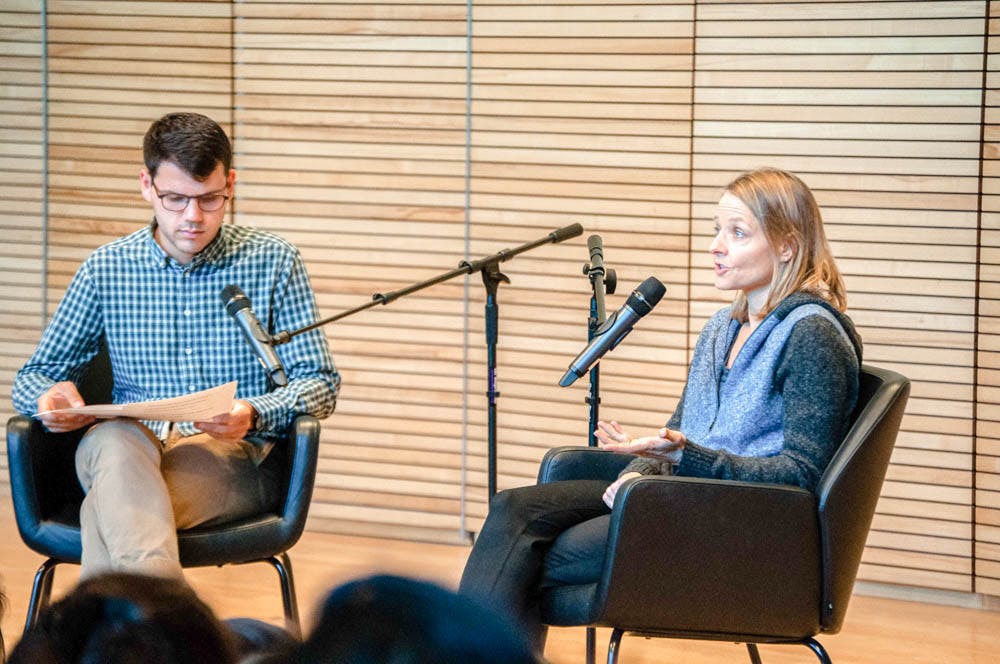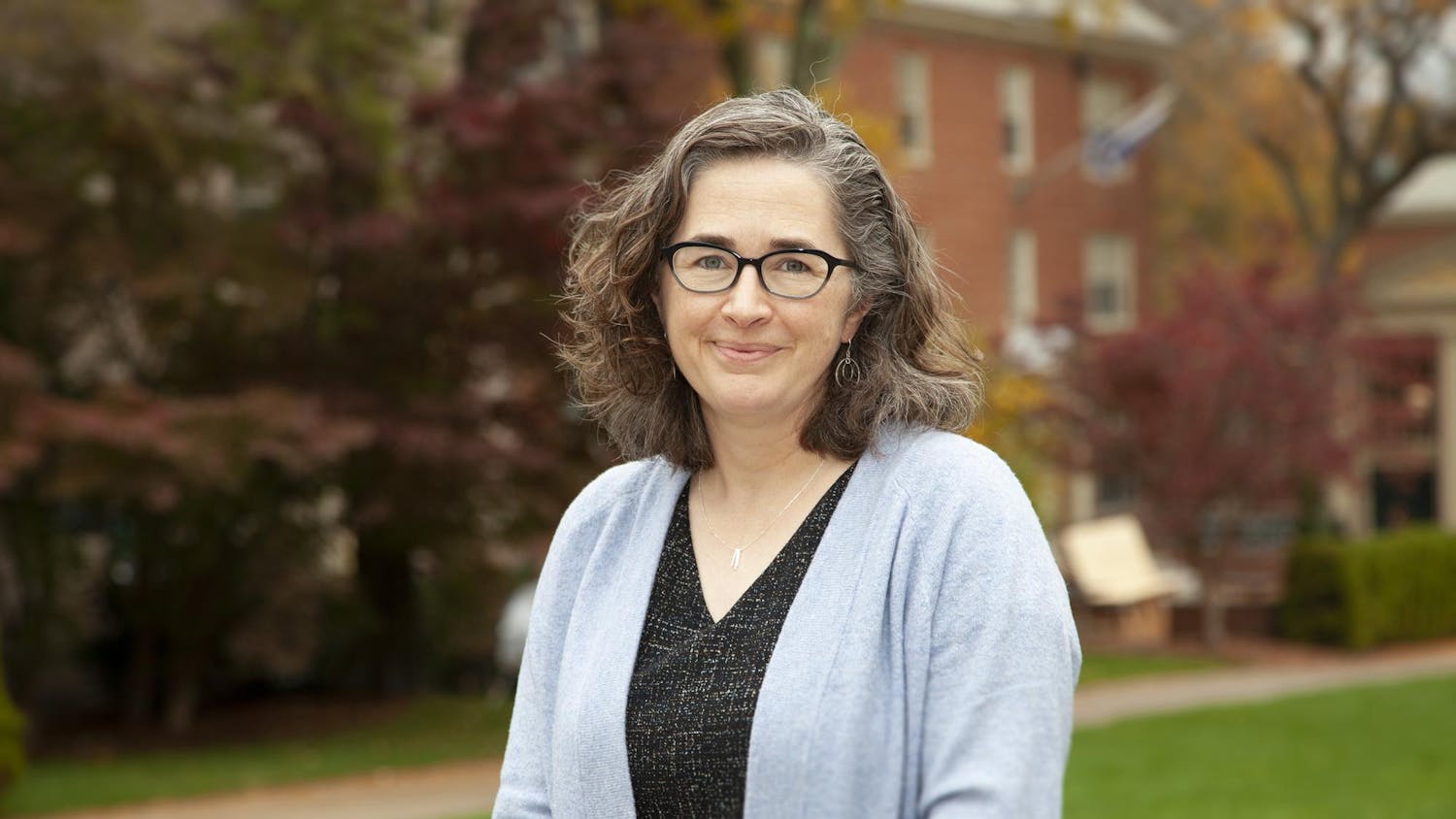Casually gracing the stage in a hoodie and motorcycle boots, Jodie Foster presents herself as anything but a blockbuster celebrity who has been in the national spotlight since childhood. Tuesday morning, the Academy Award winner sat down with Ivy Film Festival Managing Director Oakley Friedberg ’17 for the festival’s kickoff event.
In response to questions crowd-sourced online beforehand, Foster offered sage industry advice from her time as an actor, director and producer to a full Martinos Auditorium in the Granoff Center for the Creative Arts.
“Leave the lenses and the cranes for later,” she said. “The equipment is the least important part of the process. The most important part is figuring out what you’re trying to say.”
Foster talked about her time as an undergraduate at Yale, where she studied literature and didn’t take a single film class, she said.
After her breakout role at age 12 in Martin Scorsese’s “Taxi Driver” — which landed her an Oscar nomination for best actress in a supporting role — Foster approached college as a way to escape childhood stardom.“It’s really important to be more than just your job,” Foster said, adding that growing up in the spotlight can be “a slippery slope.”
“My education was learning how to read and wanting to look deeper,” Foster said, adding that a liberal arts education is an “amazing foundation for filmmaking.”
“There’s no reason why you have to be a film major in order to do film later on,” she said.
After her time at Yale, Foster went on to win two Oscars for best actress in a leading role for her work in “The Accused” and “The Silence of the Lambs.”
Eventually, conversation veered toward her more recent experiences as a director, working on “Little Man Tate,” “Home for the Holidays” and “The Beaver.”
In some ways, these three films, which center on characters of different ages, constitute “a personal trilogy” for Foster, she said, speaking of her own life as a child prodigy, 30-something searching for her identity and newly middle-aged woman coming to terms with that descriptor.
“I always say I make personal films,” she said, explaining that this does not mean that the films are autobiographical but rather that her life story “finds its way into the narrative.”
Her current work directing “Money Monster,” starring George Clooney and Julia Roberts, has required two years of production and two years of planning prior to production. “I still have another week of mixing left,” she said. The film is slated to premiere this May.
The movie “is in the landscape of guns, bombs and SWAT guys,” but Foster maintained that it “has so much resonance” for her because of the omnipresent role that technology plays in the plot and production process.
The shooting required both film and broadcast cameras to create a real-time narrative, which required “jigsaw-puzzle planning that would have been impossible 20 years ago,” she said.
Never formally trained, Foster attributes her directing chops to on-the-job learning. “If you’ve been in the film industry long enough, there are some things that are just like water to you,” she said.
In her time working as an actor with prominent directors, Foster always tried to “stand behind their shoulders” and ask them how and why they made certain decisions, she said. “Because I didn’t go to film school, my film school has been making movies.”
But she recognized that this is a rare path and advised students interested in film to “go to movies and talk about what was wrong with them, and then ask yourself what you would have done differently,” she said. “Re-writing films is the best film school you can have.”
She also encouraged students to take risks in their work and use their time in school as an opportunity to try new approaches. “You can make a film on your iPhone,” she said. “Film is cheap right now, so there are lots of new voices doing exciting new things.”
As a woman in the film industry, Foster spoke of increasing gender equality in all positions except for directing. “There is a fear that somehow female films are less successful and women don’t know how to be leaders,” she said.
But “women are just a different kind of leader because of how we were raised,” she said. “It’s gender psychology,” she said, adding that “you have to get to the root” of this gender disparity at the upper levels of film to really understand it.
As a director, Foster tries to lead by being “straightforward” and strives to “include the actor in the filmmaking experience,” she said.
Foster credited another noteworthy guest coming to campus for IFF this year, Robert De Niro, with opening “my eyes to what acting can be.” Foster acted alongside De Niro in “Taxi Driver.”
Before working with De Niro, Foster thought acting was “stupid.” She described her former understanding of the craft as “read(ing) something that somebody else wrote, and then you say it,” she said to laughter. “I owe a great debt to him.”
De Niro will speak on a panel Thursday at 5:00 p.m. in Salomon Hall.





